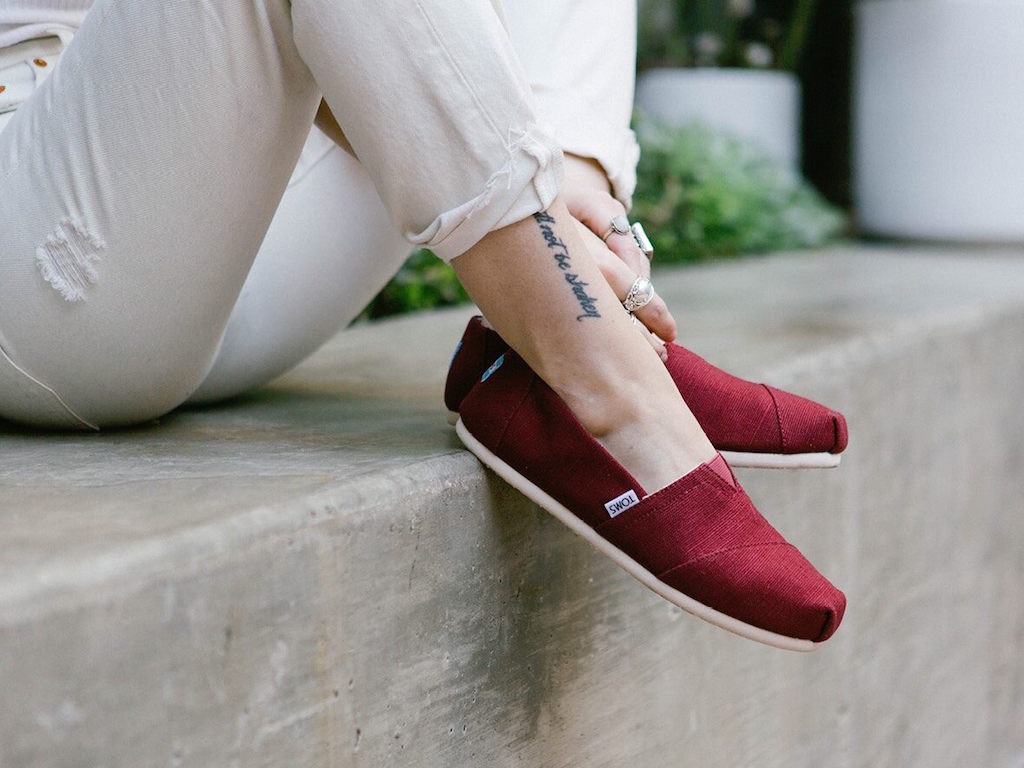3 Mins Read
Toms Shoes, the ethical shoe brand that shot to worldwide fame in the 2000s for its One-for-One shoe donation model, has just been transferred to its creditors. In a recent letter, employees were informed of the transfer of ownership from founder Blake Mycoskie and Bain Capital to Jefferies Financial Group, Nexus Capital Management and Brookfield Asset Management. The collapse of the iconic shoe brand known for its charitable mission calls into question the relevance of their “One-for-One” model in a fiercely competitive business environment where fast fashion brands and mass-market retailers rapidly churn out inexpensive clothing to an albeit shrinking demographic of eager shopaholics.
In a letter to employees, the group of creditors led by Jefferies Financial Group, Nexus Capital Management and Brookfield Asset Management, announced that they will take over ownership of Toms Shoes from its founder Blake Mycoskie and private equity firm Bain Capital, who had acquired a 50% stake in the brand five years ago. The creditors will provide debt relief to the Los Angeles-based company, who had been struggling to repay a US$300 million loan due this year. It is still unclear whether Mycoskie will continue to have a role with the company given that the founder will no longer remain an owner.
Toms was created in 2006 by Mycoskie, inspired by his visit to Argentina where children lacked shoes. Launching to huge fanfare in their initial years, their products became available through over 500 stores worldwide, including many in Asia, from department stores to independent outlets. Since their inception, the company has gifted almost 100 million pairs of shoes to underprivileged children all over the world, including in Argentina, Ethiopia, Guatemala, Haiti, Mexico, Rwanda, South Africa and the United States.
Toms Shoes has faced a challenge in recent years to lower the prices of their classic alpargatas, especially as the appeal and novelty of their “One-for-One” model of donating a pair of shoes or per purchase has worn off. They applied this buy-one-give-one business model to their expanding product line over the years, which included eyewear, coffee and apparel. According to Toms Shoes, in addition to donating shoes, a third of their net profits go towards financing a range of philanthropic projects working on social causes.
This news reflects the reality that many do-good brands struggle to cope in a fiercely competitive global market where companies have continually prized profits over the planet and people by appealing to the masses with low prices. Despite the fact that the fashion industry has clearly geared up efforts to clean up their act by launching public campaigns to combat everything from waste to carbon emissions, and consumers have shown an increasing willingness to support responsible brands, the sobering reality is that fast, cheap and wasteful fashion promulgated by our consumerist culture still pervades much of society.
The statistics show that in spite of sustainable brands (or branding) taking off, the number of garments have still doubled since 2000, exceeding 100 billion items in 2014. According to the Ellen McArthur Foundation, one garbage truck of textile waste is landfilled every second. With textile waste set to continue increasing by 60% between 2015 and 2030, it is clear that much of the industry has yet to take action, and we as consumers are still contributing to the demand for cheaper and faster products that leave behind a trail of environmental and social irresponsibility.
While the demographic of shoppers that overlook the impact of companies have albeit shrunken in recent months thanks to the uptick in awareness amongst consumers, the squeezing out of such an iconic charitable brand Toms Shoes shows that there is still a long way to go to change businesses and consumer habits.
January 2020 Update: The title of this article has been updated to accurately reflect Toms Shoes’ current situation.
Lead image courtesy of Toms Shoes.




